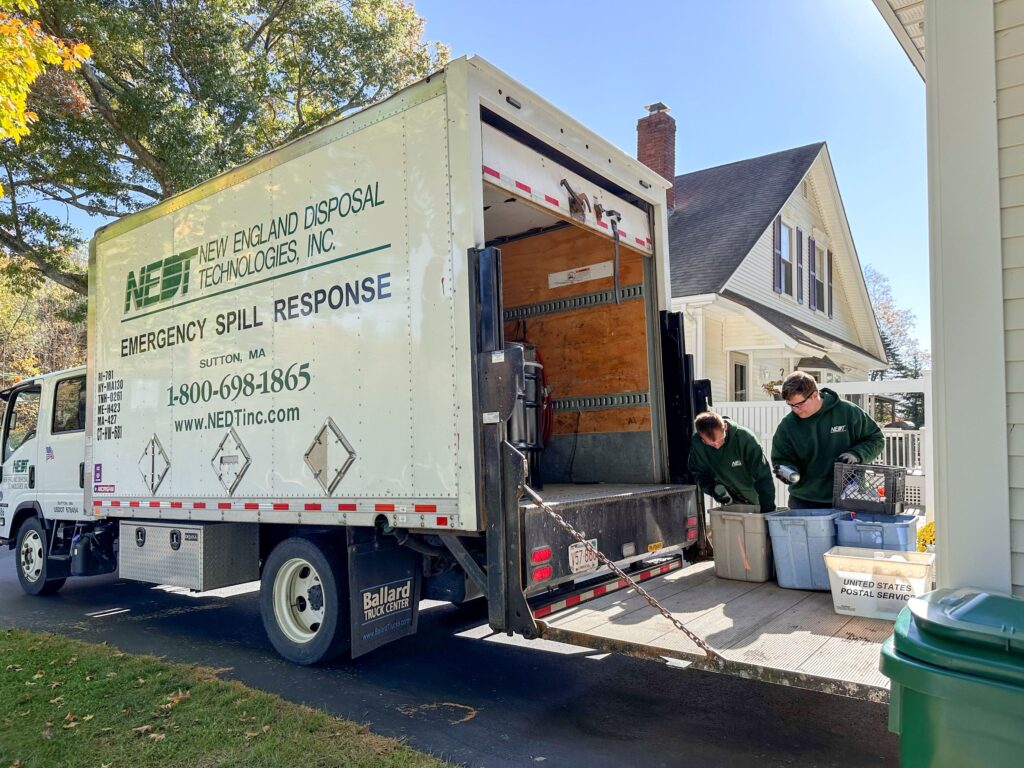We hope you’re looking forward to the holidays…and planning for the aftermath of all that gift-giving: not only all that wrapping paper but all the incidentals those new gifts cause. Suddenly redundant electronics, just-discovered dead batteries, and a general tightening of storage as new gifts take up space. Some of these things can’t be thrown away and do pose a real hazard to you and your loved ones. Today, let’s talk about hazardous holiday products and how to properly deal with them.
eWaste: Dealing with Unneeded Electronics
A new TV, phone, or kitchen accessory might mean you’re now dealing with electronic waste – eWaste – in the form of outdated products that need to be disposed of. These electronics are often unable to be disposed of at home due to hazardous materials and situations, including:
- Heavy Metals: Due to their complexity, many electronics contain hazardous heavy metals, including lead, cadmium, and mercury.
- Electrical Discharge: A particular problem with old CRT TVs and monitors, these electronics can hold a very dangerous electronic charge for long periods after being unplugged.
- Chemicals & Batteries: Some electronics may contain hazardous chemicals that can react to water or other things in the trash to create heat or gas, such as lithium batteries.
Learn more about the dangers of throwing eWaste in the garbage with our blog, eWaste: Why Electronics Shouldn’t Be Thrown in the Trash.
Handling and Disposing of Old Batteries
As mentioned above, batteries can come with their own headaches – and with all the electronic gifts, you’ll both be digging around your old collections and replacing some, leaving you with a wide array of dead or unusable batteries. It’s important to know which ones can be thrown away, which can be recharged, and which need to be taken to a hazardous waste collection facility to be properly disposed of. As a general rule, single-use alkalines can be thrown away, rechargeables (often nickel-cadmium) cannot, and neither can high-performance batteries, which tend to contain lithium-ions. Learn more about household battery disposal in our guide here.
Clearing Household Hazardous Waste Out of Your Home
Sometimes you just have too much stuff. A major reason for unused products piling up, from cleaning products to old paint, is their inability to be disposed of at home. While you have many options for disposing of hazardous household products, some are easier than others, including using pay-as-you-throw facilities like NEDT. If you’re uncertain about making the trip, take our quiz first to better understand what you have at home and how to deal with it.
At NEDT, we wish you all happy holidays and joy with your new gifts – and we hope these tips will make it that much easier to enjoy them and your home this winter, free of hazardous holiday products. If we can help, please let us know by contacting us, including for a pick-up at your home! Learn what we accept and our locations and times, since, like yourselves, we’ll be taking some time off this December and beyond.



Leave a Reply